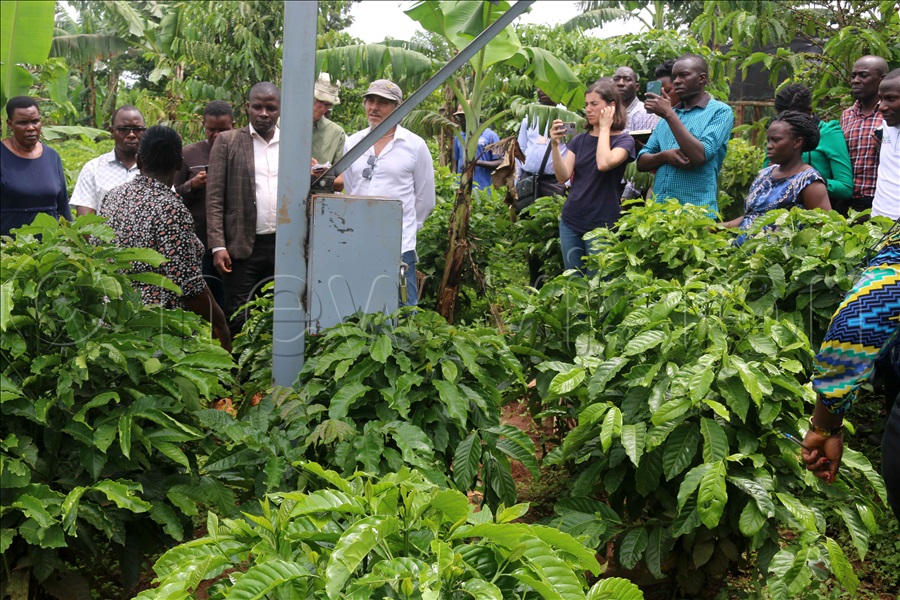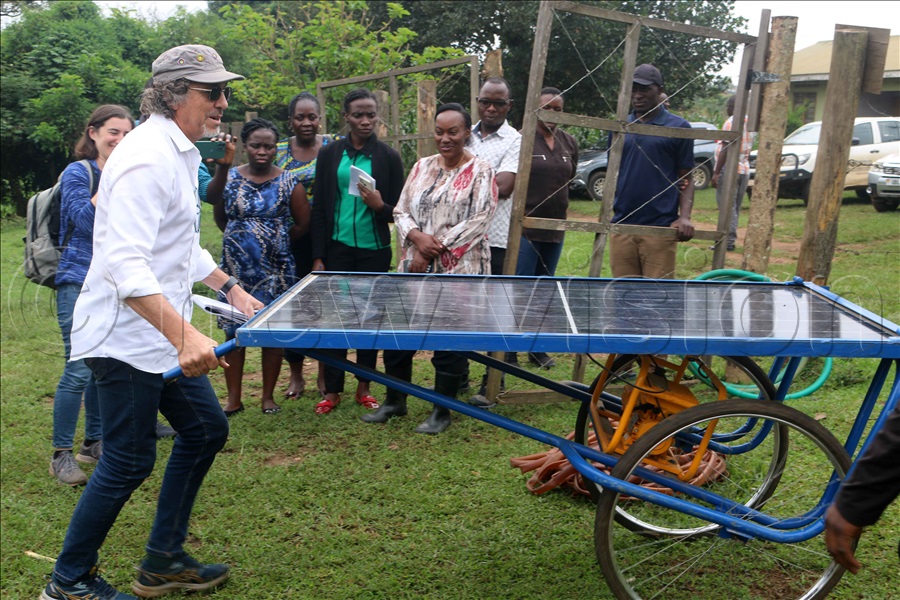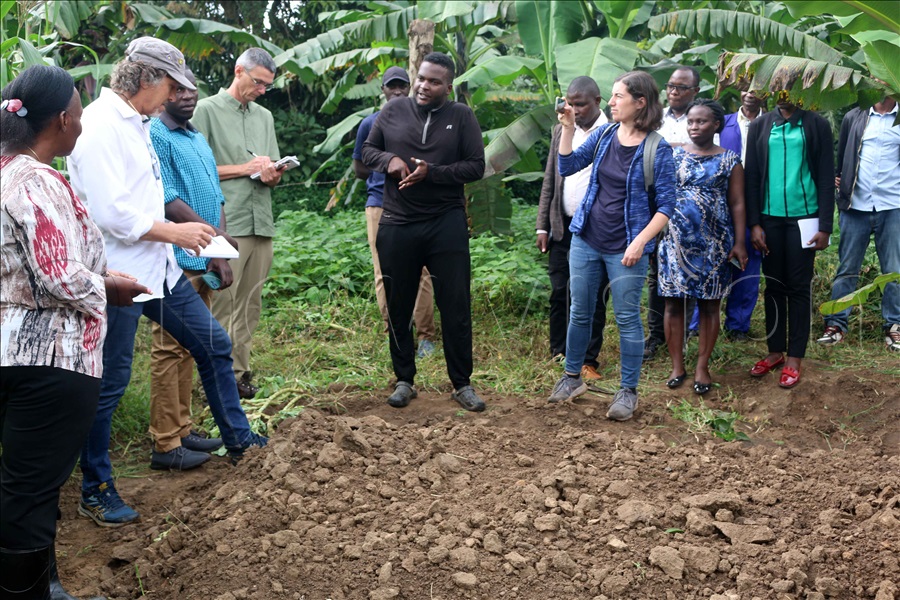By Agnes Nantambi
Hellen Karambasaizi is an urban farmer from Kungu village, Kira Municipality in Wakiso district.
She is the owner of Kungu farm view, a mixed farm located in kungu. She grows vegetables, rears animals like cows, pigs and rabbits and raises birds.
Karambasaizi says that urban farming is usually affected during drought.

She says the recent drought which hit the entire continent leading to the death of humans, did not spare her farm, which she attributed to a lack of water for irrigation.
Karambasaizi is, however, thankful for the intervention of the World Bank which brought about the micro-scale irrigation program.
She says the program rejuvenated her farm and increased hope for results.

“During the drought, we had challenges of irrigation, especially with the manpower irrigation system. Production was very low, but now we have plants in and out of the year, and we even have feeds for our animals. We use the irrigation system got from the World Bank to water the plants,” she said.
This, she said is great because they no longer depend on the season, but can harvest at any time of the year and always decide which vegetable to plant without depending on the rainy season.

She also called upon the government to sensitise farmers about agricultural insurance to empower them with the knowledge on how to solve problems challenging them.
Karambasaizi said this during the visit of officials from the World Bank to farmers in Wakiso district while assessing the performance of the micro-scale irrigation program.
The World Bank delegation headed by Gabriella Izzi, the Senior Irrigation Specialist applauded the farmers towards their efforts to embrace the program which she said will lead to its success.

She observed that in just a few months, the program which was launched in 2020 in 40 Local Governments has registered more than 20,000 farmers expressing interest.
“The technical staff at districts and sub-county levels have recorded noteworthy performance confirming water availability and business case for the introduction of irrigation,” explained Izzi.
She said, “We were lucky to meet some of these farmers, this is an impressive result, considering that the program started amidst difficult circumstances imposed by the COVID-19 pandemic.”

According to Izzi, climate change requires smallholder farmers in Uganda to adapt to less-favourable rainfall patterns, noting that historically, farmers across most of the country secured annual production of the two rainfed cropping seasons.
“Over the last decade, the long rains have shortened from nine to six or seven months, and the onset of rains is uncertain. Smallholders who comprise the vast majority of farmers in Uganda now perceive weather to be their greatest production risk,” she said.
Available statistics indicate that less than 5% of the irrigation potential is utilized, with only 77,000 ha irrigated on record.
The National Irrigation Policy sets a very ambitious target of 1,500,000 ha of the irrigated area by 2040, but half of the areas that can potentially be irrigated are very close to water resources, making it possible for farmers to establish their micro-irrigation system.
The Micro-scale Irrigation Program is a USD50m three-year World Bank-supported program financed through the Uganda Intergovernmental Fiscal Transfers Program (UgiFT) through the Ministry of Agriculture.
Joseph Jagwe, the Senior Agricultural Engineer in Wakiso district said Wakiso district is among the 40 pioneer districts where farmers are financed to support irrigation in a cost-sharing way.
Eng. Titus Nuwamanya, the Principal Engineer of Irrigation and Drainage at MAAIF said about sh50b has been disbursed to 40 pilot districts.
Under the program, he said government puts 75% of the money and a farmer puts 25%.
He said so far, they have supported about 650 farmers among the 40 districts with 650 already received the equipment and are working





